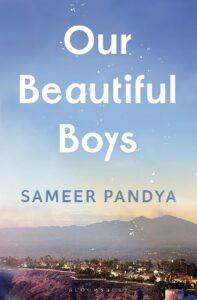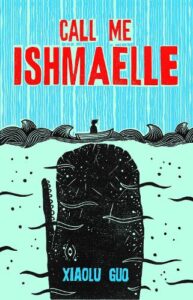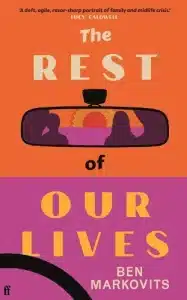
By March, spring is firmly in my sights with hopes for fine weather and outdoor get togethers although I know we’re a long way from that. In the meantime,  there’s lots of interesting fiction to look out for.
there’s lots of interesting fiction to look out for.
Natasha Brown’s debut, Assembly, was one of my books of 2021: a brief, astonishingly powerful novella about a young woman of colour reassessing her place in the world. Her new one, Universality, sees a journalist solve a mystery surrounding the bludgeoning of a man on a Yorkshire farm with a solid gold bar, a solution which throws up more questions than it answers. ‘Universality is a twisty, slippery descent into the rhetoric of truth and power. Through a voyeuristic lens, it focuses on words: what we say, how we say it, and what we really mean’ says the blurb promisingly.
Claire Baglin’s On the Clock follows a young working class family, struggling with money and time but still managing to find joy and laughter in a trip to the seaside or playing games with each other, and a woman working in a burger joint, her days dominated by a demanding but repetitive routine, difficult customers and demanding managers. ‘What emerges, alive with eloquent detail, is a compelling exploration of social inequality. Writing with nimble nuance, a sly, subtle wit, and a sharp ear, Claire Baglin marks her debut in On the Clock as a blazingly original talent’ says the blurb. This one’s published by Daunt Books whose list is well worth keeping an eye on.
On the Clock follows a young working class family, struggling with money and time but still managing to find joy and laughter in a trip to the seaside or playing games with each other, and a woman working in a burger joint, her days dominated by a demanding but repetitive routine, difficult customers and demanding managers. ‘What emerges, alive with eloquent detail, is a compelling exploration of social inequality. Writing with nimble nuance, a sly, subtle wit, and a sharp ear, Claire Baglin marks her debut in On the Clock as a blazingly original talent’ says the blurb. This one’s published by Daunt Books whose list is well worth keeping an eye on.
 I’m in two minds about Sameer Pandya’s Our Beautiful Boys which explores the fallout from a party to celebrate a high school football win that leaves the school bully in hospital and three of the team’s stars suspended. As their families begin to assess the effects on the boys’ futures and how their reputations may have been damaged, secrets leak out posing uncomfortable questions. ‘Our Beautiful Boys is a page-turning and incisive novel about masculinity, race, education and privilege, and the conflict that arises when all these collide’ according to the blurb. We’ll see
I’m in two minds about Sameer Pandya’s Our Beautiful Boys which explores the fallout from a party to celebrate a high school football win that leaves the school bully in hospital and three of the team’s stars suspended. As their families begin to assess the effects on the boys’ futures and how their reputations may have been damaged, secrets leak out posing uncomfortable questions. ‘Our Beautiful Boys is a page-turning and incisive novel about masculinity, race, education and privilege, and the conflict that arises when all these collide’ according to the blurb. We’ll see
I’m not entirely sure about Xiaolu Guo’s Call Me Ishmaelle, either, but I was impressed enough with I am China back in 2014 to give this one a try. As you can guess from the title, it’s a reworking of Herman Melville’s Moby Dick which sees Ishmaelle, born in Kent in 1843, disguising herself as a cabin boy and working a passage to New York, then later aboard the whaling ship Nimrod under the obsessive Captain Seneca. ‘Xiaolu Guo has crafted a dramatically different, feminist narrative that stands alongside the original while offering a powerful exploration of nature, gender and human purpose’ promises the blurb which sounds extraordinarily ambitious but then so was I am China.
 Billed appealingly as a road novel, Benjamin Markovit’s The Rest of Our Lives follows fifty-five-year-old Tom Layward whose daughter is about to start college leaving behind her parents unsure of their own future. Tom’s health seems to be a concern to everyone, but his doctor and he’s been suspended from his professorship for his political stance. After driving his daughter to Pittsburgh, he sets off on an odyssey not quite knowing where he’s going. We’re in classic mid-life crisis territory as Tom remembers his youth, wonders about resurrecting the idea he had for a novel, broods on his wife’s affair and what their future life together might be if there is to be one. I enjoyed this one for its structure and have read several novels by Markovits, including The Sidekick, but I’m not sure I’ll be reading another. Review soon…
Billed appealingly as a road novel, Benjamin Markovit’s The Rest of Our Lives follows fifty-five-year-old Tom Layward whose daughter is about to start college leaving behind her parents unsure of their own future. Tom’s health seems to be a concern to everyone, but his doctor and he’s been suspended from his professorship for his political stance. After driving his daughter to Pittsburgh, he sets off on an odyssey not quite knowing where he’s going. We’re in classic mid-life crisis territory as Tom remembers his youth, wonders about resurrecting the idea he had for a novel, broods on his wife’s affair and what their future life together might be if there is to be one. I enjoyed this one for its structure and have read several novels by Markovits, including The Sidekick, but I’m not sure I’ll be reading another. Review soon…
Madeleine Watt’s Elegy, Southwest is also a road novel which I spotted on social media thanks to a passionately enthusiastic  post from its editor. It follows Eloise and Lewis over two weeks they spend tracing the course of the Colorado River, central to Eloise’s dissertation, beginning with Thanksgiving with Lewis’s father. The death of his mother in the spring has hit Lewis hard. Eloise is worried about his self-medicating, hoping that the trip might help but it’s clear that he’s in trouble leaving her at a loss to know what to do. As they drive through the spectacular desert scenery, beset by wildfires, Eloise contemplates what was once the mighty Colorado River, now a trickle. Watts’s novel is an engrossing and engaging love story for both Eloise and Lewis and for the planet, each reflecting the other. I loved it. Review shortly…
post from its editor. It follows Eloise and Lewis over two weeks they spend tracing the course of the Colorado River, central to Eloise’s dissertation, beginning with Thanksgiving with Lewis’s father. The death of his mother in the spring has hit Lewis hard. Eloise is worried about his self-medicating, hoping that the trip might help but it’s clear that he’s in trouble leaving her at a loss to know what to do. As they drive through the spectacular desert scenery, beset by wildfires, Eloise contemplates what was once the mighty Colorado River, now a trickle. Watts’s novel is an engrossing and engaging love story for both Eloise and Lewis and for the planet, each reflecting the other. I loved it. Review shortly…
That’s it for March’s first batch of new fiction. As ever, a click on a title will take you to a more detailed synopsis for any that take you fancy. Part two when I get back from Stockholm where I’m nipping off to with H tomorrow.







